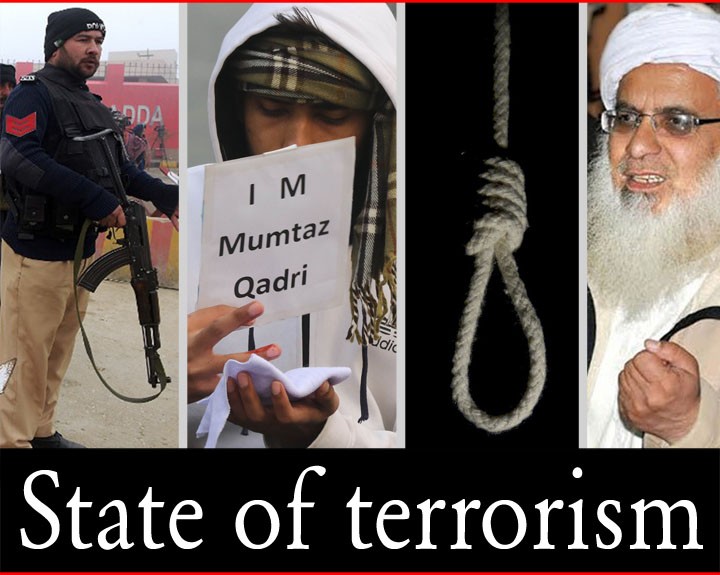
Where does the state of Pakistan stand today in its response to the existential terrorist threat?

The year end and the beginning of the new year were marked by a resumption of terrorist attacks in the country. The most potent one came in the form of an attack on Bacha Khan University in Charsadda, killing twenty students and a young professor. This followed a series of attacks in Khyber Pakhtunkhwa and Balochistan in the preceding month.
The level of threat posed by the militants is on the rise; most schools, colleges and universities in the country are closed under one pretext or the other. It is unbelievable that the spate of attacks has come only a year after the Army Public School attack in December 2014. "Never again" was the message the state had categorically conveyed.
The military operation Zarb-e-Azb was continued with renewed vigour and not just in Fata. A constitutional amendment was hurriedly passed allowing for the setting up of military courts and people on death row were executed and reported in full media glare.
So where does the state of Pakistan stand today in its response to the existential terrorist threat? This is the subject of our Special Report today.
Is the state narrative on terrorism adequate enough? Are military operations and bombings the best strategy? What about the threats lingering in cities? What about empowering the police as a counter terrorism force? What has the state done about the Afghan connection? When will this cycle of terrorism end? What about the radicalised society that breeds terrorism?
These are all questions that we have tried to address in today’s Special Report. It’s a kind of report card on the state of terrorism in the country. The unfortunate fact is that there is not much good to predict about. Things look bleak at the moment. What looks bleaker is that the state has not yet found the right direction.
Read the main story: State of Terrorism